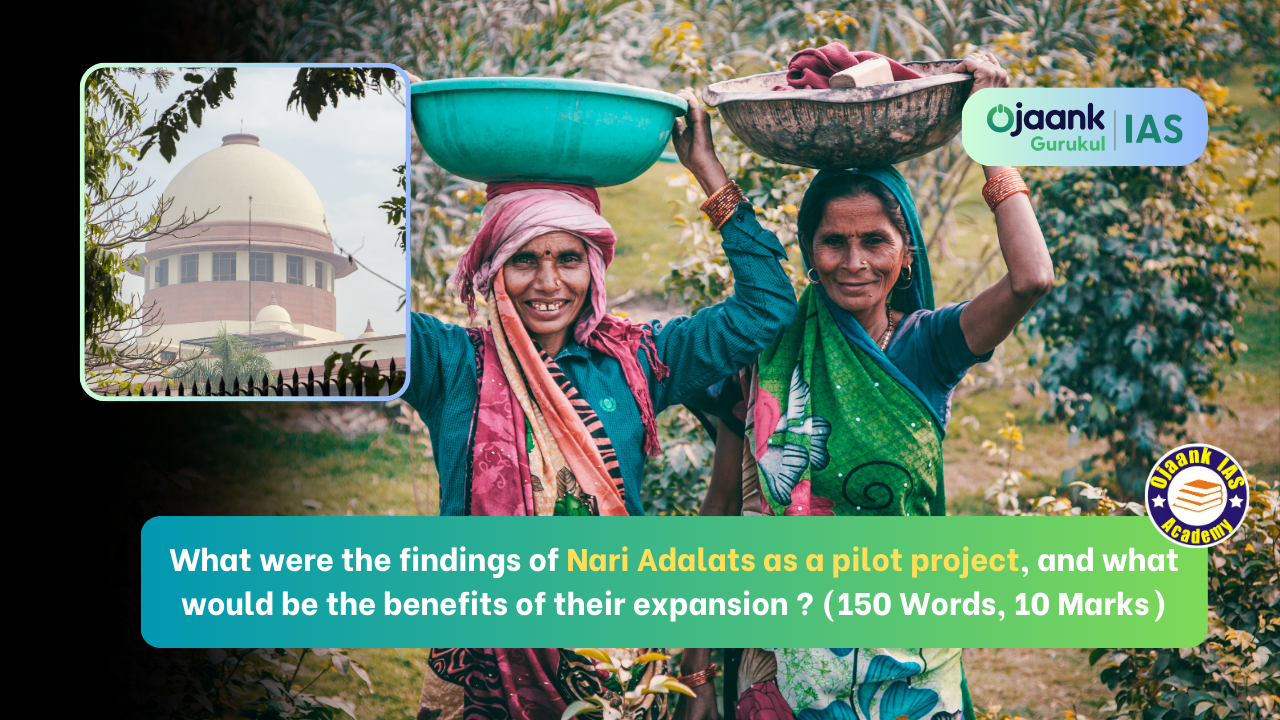2/15/2025
What were the findings of Nari Adalats as a pilot project, and what would be the benefits of their expansion? (150 Words, 10 Marks)

Pilot Project Findings:
Trial in Assam and Jammu & Kashmir:
- Establishment of Nari Adalats in 50-50 Gram Panchayats.
- In 2023-24, 102 disputes in Assam were addressed, with 76 resolved.
- In Jammu & Kashmir, 180 cases were recorded, with 144 settlements.
Positive Outcomes:
- Swift Dispute Resolution – Helps in quickly resolving pending cases.
- Women's Participation in Judicial Processes – Provides them an opportunity to be involved in judicial decision-making.
Benefits of Expansion:
Decentralization of Judicial Processes
- Ensures judicial access in all states – Justice available at the rural level.
- Promotes judicial autonomy in Gram Panchayats – Localized resolution of cases.
More Information on Judicial Decentralization
Safe Environment for Women
- Quick resolution of domestic disputes – Faster resolutions for domestic violence and property conflicts.
- A simplified legal process for women – Justice without complex legal barriers.
Women Empowerment and Legal Rights
Increase in Social Justice
- Promotes women's empowerment – Provides women with decision-making opportunities.
- Strengthens the traditional justice system – Enhancing judicial processes.
Advantages of Expanding Nari Adalats
- The expansion of Nari Adalats across all states will accelerate the resolution of local disputes.
- This will be a crucial step toward empowering women legally and strengthening the local justice system.
Detailed Information on Nari Adalats
FAQs (Frequently Asked Questions)
1. What is a Nari Adalat?
- Nari Adalats are judicial units established at the Gram Panchayat level to resolve disputes concerning women.
2. How do they function?
- These courts simplify legal processes to provide women with swift and fair resolutions.
3. What are the benefits of Nari Adalats?
- They help in delivering justice to women, strengthen the traditional justice system, and promote social justice.
4. Will Nari Adalats be implemented across India?
- Following the successful results of the pilot project, the government is considering their expansion.
5. Are they only for women's cases?
- While they primarily focus on women's issues, they also resolve other local disputes.